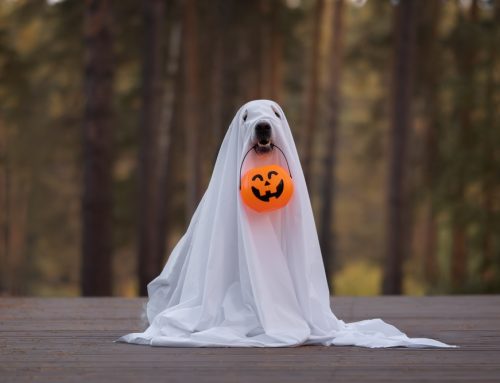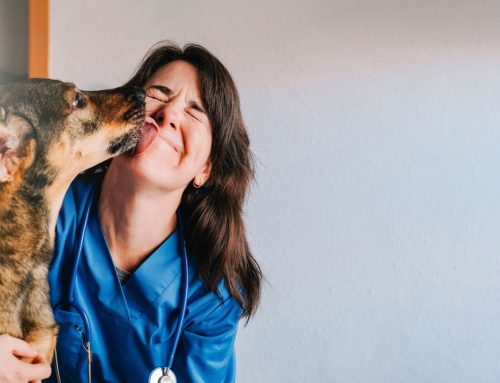Why Does My Doggie Daycare Require a Flu Vaccine?
If your dog attends daycare, you may have noticed a new requirement for the canine influenza vaccine. This requirement has become more common, especially in areas like Fort Worth, Texas, where there was a significant influenza outbreak in 2023. Let’s explore why dog daycares now require the canine flu vaccine, what canine influenza is, and how it affects your dog’s health.
What is Canine Influenza?
Canine influenza (dog flu) is a contagious respiratory infection caused by the influenza virus. The two strains that primarily affect dogs are H3N8 and H3N2. Symptoms include coughing, sneezing, fever, and nasal discharge. In severe cases, it can lead to pneumonia and other complications. While most dogs recover with supportive care, it can be fatal in some cases, particularly in puppies, older dogs, or those with pre-existing health conditions.
The 2023 Fort Worth Influenza Outbreak
In 2023, Fort Worth experienced a large outbreak of canine influenza, centered around local animal shelters and dog parks. The outbreak led to the closure of several facilities, including Fort Worth Animal Care and Control, to contain the virus. Hundreds of dogs were affected, with many requiring isolation and treatment.
Due to the highly contagious nature of canine influenza, veterinarians in the Fort Worth area advised pet owners to vaccinate their dogs against the flu. Since then, many daycares, boarding facilities, and groomers have made the vaccine a requirement to prevent the spread of the virus in their environments, where dogs are in close contact with each other.
For more information, visit Fort Worth Animal Shelter Battles Canine Influenza Outbreak.
Why Doggie Daycares Require the Flu Vaccine
Daycare environments are high-risk for spreading respiratory diseases like canine influenza. Dogs in daycare play together, share water bowls, and are in close proximity, which makes it easy for viruses to spread. To protect all pets, many facilities have adopted vaccination requirements for diseases like kennel cough and canine influenza.
By requiring the flu vaccine, daycares can help:
- Reduce the Spread of Disease: Vaccinated dogs are less likely to spread or catch the flu, which helps protect the larger dog community.
- Protect High-Risk Dogs: Puppies, elderly dogs, and those with chronic illnesses are more susceptible to complications from influenza. By vaccinating all dogs, these vulnerable pets are better protected.
- Minimize Business Disruption: An influenza outbreak could cause a daycare to temporarily close, disrupting business operations. Vaccinating dogs helps prevent outbreaks, ensuring the facility can stay open and safe for all pets.
How the Canine Influenza Vaccine Works
The canine flu vaccine is designed to protect dogs against the H3N8 and H3N2 strains. It is an inactivated (killed) vaccine, meaning it contains the virus but in a form that cannot cause disease. The vaccine stimulates the immune system to produce antibodies, which protect your dog if they are exposed to the virus.
Most dogs will need an initial series of two doses, given two to four weeks apart. After that, your dog will need an annual booster to maintain immunity.
For more details on vaccine schedules, check out our Puppy and Kitten Shots page.
Is the Flu Vaccine Safe?
Yes, the canine influenza vaccine is considered safe for most dogs. As with any vaccine, mild side effects like soreness at the injection site or lethargy can occur, but these typically resolve within a day or two. Serious reactions are rare, but it’s important to monitor your dog after vaccination and contact your veterinarian if you notice any unusual symptoms.
At Animal Hospital Southwest, we offer flu vaccines and will discuss any concerns you may have before vaccinating your dog. Our experienced team is happy to help you learn more about our vaccination recommendations.
Other Important Vaccines for Daycare Dogs
While the canine influenza vaccine is crucial, there are other vaccines that daycare facilities often require. These include:
- Bordetella (Kennel Cough): Protects against a contagious respiratory disease commonly spread in boarding and daycare environments.
- Rabies: Required by law in many areas, the rabies vaccine protects against this fatal virus.
- Distemper, Adenovirus, and Parvovirus (DHPP): This combination vaccine protects against several life-threatening viruses.
To ensure your dog is up to date on all required vaccines, visit the American Animal Hospital Association’s most recent canine vaccine guidelines.
How to Protect Your Dog

If your dog attends daycare or interacts with other dogs frequently, keeping them up to date on vaccinations is essential. Here are some tips for protecting your dog from the flu and other contagious diseases:
- Stay Informed: Keep up with local outbreak news. If there’s a canine flu outbreak in your area, avoid dog parks and other crowded places.
- Vaccinate: Ensure your dog is up to date on all vaccines, especially if they attend daycare or are boarded frequently.
- Monitor Your Dog’s Health: If your dog shows any signs of respiratory illness, such as coughing, sneezing, or lethargy, keep them home and contact your vet.
You can book your dog’s vaccination appointment through our Online Appointment Scheduler.







Leave A Comment